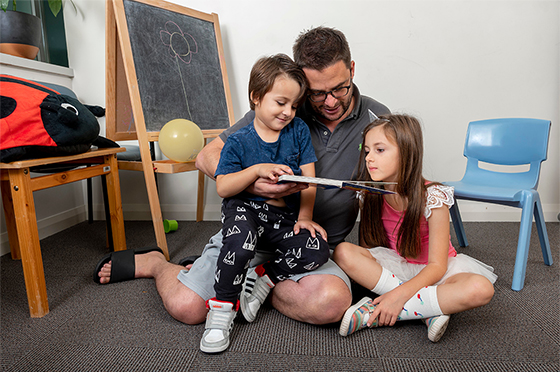Search

News & Events
Reading between the lines: making book sharing funIn this blog, Speech Pathologist Genevieve Wilmot discusses the many benefits of book sharing and how it can promote connection and social and communication development.

News & Events
Dressing - Steps to building independenceIn this blog, Occupational Therapist Tarryn Culverhouse provides some tips to help your child increase their independence in dressing.

News & Events
How much is the right amount of therapy?In this blog, CliniKids Director Professor Andrew Whitehouse and Research Development Manager Sarah Pillar explore one of the most common questions when it comes to support for autistic children - how much is the right amount of therapy?

News & Events
Following your child's interestIn this blog, Senior Speech Pathologist Sally Grauaug and Speech Pathology Clinical Lead Aria May share tips on following your child's interest.

News & Events
What is SCERTS?In this blog, Senior Speech Pathologist Sally Grauaug and Speech Pathology Clinical Lead Aria May discuss the model SCERTS and how it can support your child's communication level.

Autism is a complex developmental condition which results in differences in the way in which a person interacts, learns and behaves.

News & Events
Clinic news update - December 2024There is lots of news to report from the clinic including holiday shutdown dates, staff updates and service availability.
News & Events
Clinic update - December 2023There is lots of news to report from the clinic including holiday shutdown dates, appointment scheduling, staff updates, changes to creche, and service availability.

News & Events
Want to be part of shaping our research and services?CliniKids is committed to involving consumers and the community in all aspects of our research and service delivery. One way we do this is by providing the opportunity for consumers and community members to contribute through our community reference groups.

News & Events
Speech Pathology Week at The KidsWe’re currently celebrating Speech Pathology Week at The Kids!
